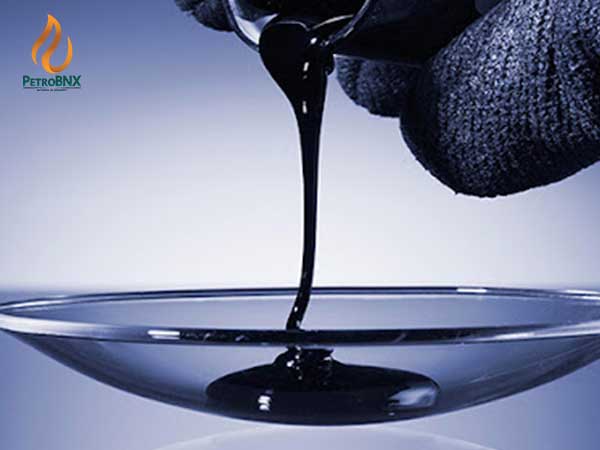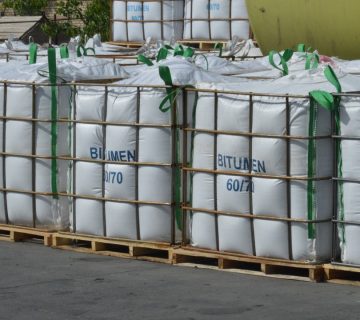Many industries rely on understanding What Is Bitumen to maximize its use in construction and waterproofing. Bitumen, also known as asphalt, is a hydrocarbon material that occurs naturally or is derived from the refining of crude oil. It plays a vital role in various industries, including construction, road paving, and waterproofing. In this article, we will explore the different types of bitumen, their properties, and their applications in various industries.
Bitumen Derived from Crude Oil Distillation

Crude oil, the primary source of industrial bitumen, is composed of various compounds separated during the distillation process. The residue from the distillation tower, known as vacuum bottom, is processed to produce bitumen.
Different types of bitumen, including penetration bitumen and oxidized bitumen (blown asphalt), are manufactured using specific refining methods. One of the main applications of bitumen derived from crude oil distillation is in road construction.
Types of Bitumen and Their Applications

To fully appreciate modern infrastructure, one must ask, What Is Bitumen and how does it contribute to durability? Bitumen is categorized into various types based on its production process, including penetration bitumen, oxidized bitumen, emulsified bitumen, and cutback bitumen. Each type is designed for specific applications and has distinct properties.
Natural Bitumen (Gilsonite)
Gilsonite is a natural bitumen with a shiny, hard appearance. It is used in printing, paint production, drilling mud, cement, asphalt, and bitumen quality enhancement. Due to its high resistance to water penetration and low flexibility, it is ideal for road construction and waterproofing.
Penetration Bitumen
Penetration bitumen is graded based on the depth a standard needle penetrates its surface. It is used in road construction depending on the climate and traffic levels. Common grades like 60/70 and 80/100 are also utilized in building insulation.
Viscosity Grade (VG) Bitumen
Viscosity grade bitumen is classified by its viscosity and is tailored for different climates:
- VG10: Suitable for cold regions
- VG30: Ideal for warm regions
- VG40: Designed for heavy traffic areas
This type of bitumen is noted for its precision in high-temperature applications and its predictable behavior under specific environmental conditions. The answer to What Is Bitumen lies in its versatile applications, from roads to roofing.
Emulsion Bitumen
Emulsion Bitumen is a mixture of bitumen and water designed to reduce environmental impact. It is used for sealing, bonding asphalt layers, and road maintenance. As it uses water instead of organic solvents, it is safer and more cost-effective.
Cutback Bitumen
This type of bitumen is produced by mixing penetration bitumen with organic solvents like gasoline, naphtha, and diesel. Cutback bitumen is ideal for cold climates and projects requiring low viscosity.
Oxidized Bitumen (Blown Bitumen)
Oxidized bitumen is produced by blowing hot air into penetration bitumen. It is widely used for waterproofing in construction and dam projects and is highly resistant to water penetration.
Performance Grade (PG) Bitumen
Performance Grade (PG) Bitumen: This type of bitumen is classified based on performance under varying temperatures and is well-suited for regions with extreme temperature variations.
Specialized Applications of Bitumen

Polymer-Modified Bitumen (PMB)
Bitumen modified with polymers is used for high-traffic roads and insulated roofing. This type offers excellent resistance to cracking and deformation.
White Bitumen
Builders who understand What Is Bitumen can better utilize it in sustainable and long-lasting projects. White bitumen, also known as synthetic asphalt or naphthalene, is highly resistant to temperature changes and moisture penetration, making it suitable for waterproofing applications.
Liquid (Cold) Bitumen
Liquid bitumen requires no heating and is used for waterproofing pools, roofs, and walls.
Factors Influencing Bitumen Prices
The price of bitumen depends on several factors, including:
- Global crude oil prices
- Exchange rates
- Consumer demand
- Transportation costs
- Regional political conditions
Conclusion
Bitumen is a critical material in various industries, particularly road construction and waterproofing. With a wide range of types and applications, selecting the right type of bitumen for each project is essential. For high-quality bitumen tailored to your needs, you can contact PetroBNX and benefit from their expert advice. At its core, the inquiry What Is Bitumen highlights its role as a binder in countless applications.





No comment